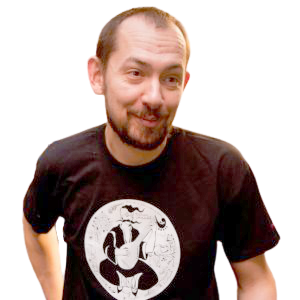Russian propaganda has been trying to make their president look macho for many years now. Here’s Mr Putin is in the cockpit of a fighter jet, and here’s Putin resurfacing from sea depths with an ancient amphorae, and here’s Putin flying a glider alongside a flock of Siberian Cranes... Then comes yet another bare torso and another caught pike. One of the main features of the image that is being molded – is Putin’s brief and catchy phrases, and the abundant use of common sayings and proverbs. Back in June 2006, the then-"young" president of Russia, when asked about the possibility of sanctions against Iran, remarked that "if a ‘babuska’ [granny] had certain sexual features, she would be a ‘dedushka’ [gramps]." Another witty bit, and the Russians have become even more proud of their idol. At the same day, contemplating the difference between the senior members of the family, Putin stressed that "politics does not tolerate a subjunctive mood."
Years later, this subjunctive became the base of Russian foreign policy, the core feature of whitewashing Russian crimes against Ukrainians. The invasion of Ukraine, the occupation of Crimea and Donbas was justified by the word "if". It has been mentioned so often over the several years of war with Ukraine that the whole alternative reality has been created for Russians, where an assumption has long become a reality for them. It’s the soldiers of modern propaganda, the Russian leaders and their minions, who create this fictitious picture of the world.
The Russian president explains that Crimea was occupied, since NATO troops and bases could be deployed on the peninsula
The Russian state TV correspondent in Rostov region, when asked why she had invented the story about the "crucified Slavic boy" was not caught off guard by the question. She readily explained everything quite "logically." Nobody hides the fact that the report was a purposeful lie, inciting hatred toward Ukraine, but to justify herself, a convenient formula of "there could be such boy" is used.
The Russian president explains that Crimea was occupied, since NATO troops and bases could be deployed on the peninsula. He is echoed by numerous experts, film directors, singers, and writers. The reason why they talk about it so often is to create a sense of fear and horror. From time to time, Russian TV warns that Russia needs to be ready to turn America into radioactive ash not to let the Alliance's tanks come to Red Square.
The Russian propaganda channel RT (Russia Today) follows the head of the Russian Federation in inventing boogey stories about the terrible future that Crimea would have faced had Putin not taken a decision on the annexation of the Ukrainian peninsula. In a fictitious reality, they compare the “peaceful” Crimea to a carnage in Donbas which Russia, itself, has orchestrated. At the same time, for some reason, they forget to mention that there are the same people standing behind the Russian invasion of Crimea and Donbas.
Having screwed up a bit in his comment on the prospects of Donbas future, Lavrov recognizes that "we will not solve this problem with more bombings and shellings – instead, we will drive it to a much deeper level"
Even now, after three years of a non-stop bloodshed, Lavrov, the Russian Foreign Minister, is still talking about "what would await" Russian-speakers in Crimea and eastern Ukraine, and continues to scare the Russians with demons from the "Right Sector" who could "capture" the peninsula. However, having screwed up a bit in his comment on the prospects of Donbas future, Lavrov recognizes that "we will not solve this problem with more bombings and shellings – instead, we will drive it to a much deeper level."
And here comes the reality. If the problem cannot be solved by "more" bombings this means there have been previous ones. Hence, there is no separatism, there is a Russian invasion and collaboration with the enemy.
The fact remains clear. There are many Russian speakers living across the globe - in the U.S., Germany, the Czech Republic, Kazakhstan, Belarus and, of course, in Ukraine. But they suffer and die only if Russia is trying to "protect" them.
Roman Tsymbaliuk, Moscow



